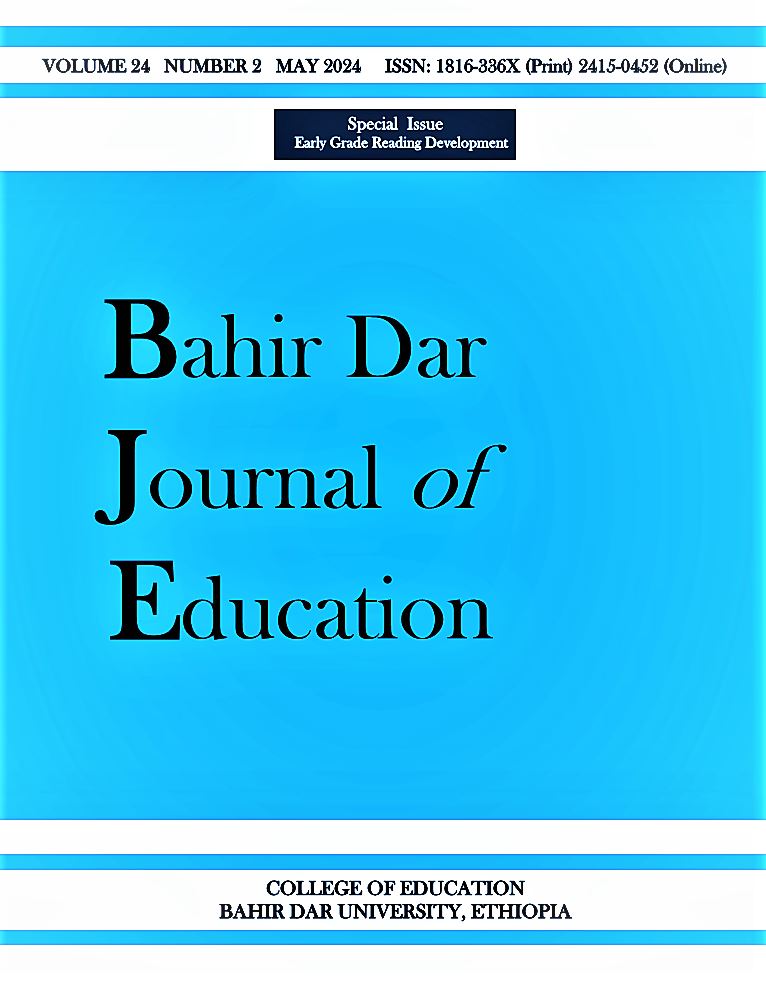Developing young learners’ reading competence in Ethiopia: A criticalreviewof the MinistryofEducation’sguidelinesfor developingsupplementaryreadingmaterials
Abstract
This study presents a critical review of the official guidelines established in 2016 by the Ethiopian Ministry of Education offering detailed criteria for the development and selection of supplementary reading materials (SRMs) for primary school learners to enhance their reading competence. Despite interventions during the last couple of decades to enhance reading performancein Ethiopia, sufficient improvement has not been seen. The study examined the extent to which the Ministry’s guidelines are conducive to appropriate development of students’ reading fluency and reading comprehension with a focus on Grades 1–4. We analyzed the criteria in view of current research in the science of reading, building also on theories of multimodality and text linguistics. Findings show that the SRM selection and development guidelines align with a traditional simple view of reading (SVR). We argue that developing and selecting SRMs based on an activeview of reading, highlighting a learner-sensitive affectivedimension of learning, has the potential to make SRMs more motivating and thus more conducive to young learners’ reading development. With this perspective on the SRM guidelines, the article ends with a reflection on the potential pedagogical implications of these new insights as part of reading teachers’ professional knowledge base.

Authors who publish with this journal agree to the following terms:
- Authors retain copyright and grant the journal right of first publication with the work simultaneously licensed under a Creative Commons Attribution License that allows others to share the work with an acknowledgement of the work's authorship and initial publication in this journal.
- Authors are able to enter into separate, additional contractual arrangements for the non-exclusive distribution of the journal's published version of the work (e.g., post it to an institutional repository or publish it in a book), with an acknowledgement of its initial publication in this journal.
- Authors are permitted and encouraged to post their work online (e.g., in institutional repositories or on their website) prior to and during the submission process, as it can lead to productive exchanges, as well as earlier and greater citation of published work (See The Effect of Open Access).
